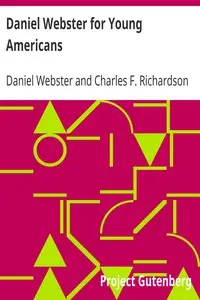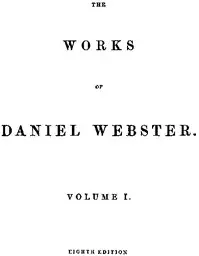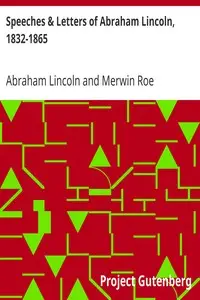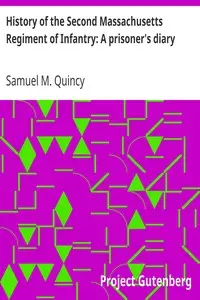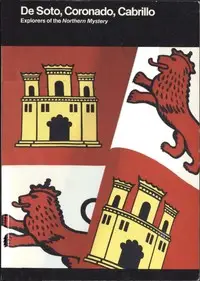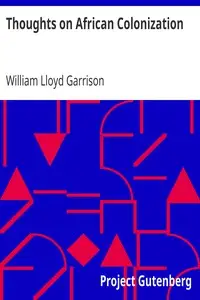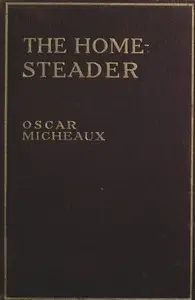"Select Speeches of Daniel Webster, 1817-1845" by Daniel Webster is a gathering of impactful speeches from a leading American speaker in the early 1800s, demonstrating his skill in public speaking. Webster spoke to different groups, such as juries and the Senate, about government ideas, the Constitution, and what it means to be a good leader; additionally, the book begins by positioning Webster as a great model for speaking and political thinking, like important historical figures. Readers are encouraged to learn from these words to better understand American politics, with early emphasis given towards Webster's way of speaking and how he affected American advocacy, urging readers to understand the basic ideas about freedom, government, and the human condition.

Select Speeches of Daniel Webster, 1817-1845
By Daniel Webster
Witness the birth of a nation's identity through the powerful words of a statesman grappling with liberty, law, and the soul of a country.
Summary
About the AuthorDaniel Webster was an American lawyer and statesman who represented New Hampshire and Massachusetts in the U.S. Congress and served as the 14th and 19th U.S. secretary of state under presidents William Henry Harrison, John Tyler, and Millard Fillmore. Webster was one of the most prominent American lawyers of the 19th century, arguing over 200 cases before the United States Supreme Court in his career. During his life, Webster had been a member of the Federalist Party, the National Republican Party, and the Whig Party. He was among the three members of the Great Triumvirate along with Henry Clay and John C. Calhoun.
Daniel Webster was an American lawyer and statesman who represented New Hampshire and Massachusetts in the U.S. Congress and served as the 14th and 19th U.S. secretary of state under presidents William Henry Harrison, John Tyler, and Millard Fillmore. Webster was one of the most prominent American lawyers of the 19th century, arguing over 200 cases before the United States Supreme Court in his career. During his life, Webster had been a member of the Federalist Party, the National Republican Party, and the Whig Party. He was among the three members of the Great Triumvirate along with Henry Clay and John C. Calhoun.


